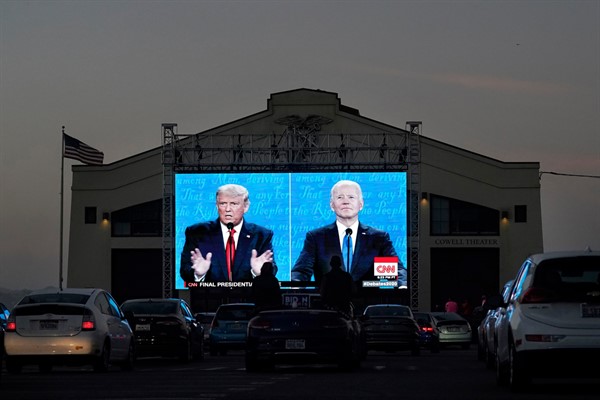The second impeachment trial of Donald Trump presents a dilemma for Joe Biden, who wants to make democracy promotion a central plank of his foreign policy. How can the United States claim to embody, much less promote, democratic values when one of its two major political parties is gripped by an emergent, homegrown fascism? Unless and until the Republican Party or its successor unequivocally repudiates the authoritarian cult of Trumpism and the conspiratorial mindset that fuels it, the United States will remain a house divided, lacking credibility to advance the cause of democracy and the institutions of free societies abroad.
What a difference three decades makes. When the Cold War suddenly ended, leaving liberalism unchallenged, many Western intellectuals and policymakers heralded the “end of history” and ideological conflict itself. The Clinton administration’s National Security Strategy, in 1994, defined the country’s chief international goal as facilitating the expansion of the world’s community of market democracies, a trend many considered inexorable. America’s hubris reached its apogee a decade later, in the “freedom agenda” of George W. Bush. In the wake of the invasion of Afghanistan and then Iraq, his administration’s second National Security Strategy, in 2006, elevated democracy promotion to the chief goal of U.S. foreign policy, even if it was by force. The United States would defend worldwide what Bush called “the nonnegotiable demands of human dignity.”
By the end of Bush’s second term, though, such dreams were fading. Democracy promotion had become conflated with violent regime change and endless nation-building exercises. Resurgent geopolitical competition and populist nationalism added to the disillusionment, leading Barack Obama to downgrade democracy promotion in his own foreign policy agenda, while reining in the excesses of the Bush era. But it was Trump’s victory—with his ready embrace of tyrants worldwide and his steady undermining of democratic institutions in the United States itself—that grievously damaged America’s reputation as democracy’s champion. Trump’s efforts to countermand the decision of American voters in November’s election, culminating in his incitement of the Jan. 6 insurrection, provided the coup de grâce.

